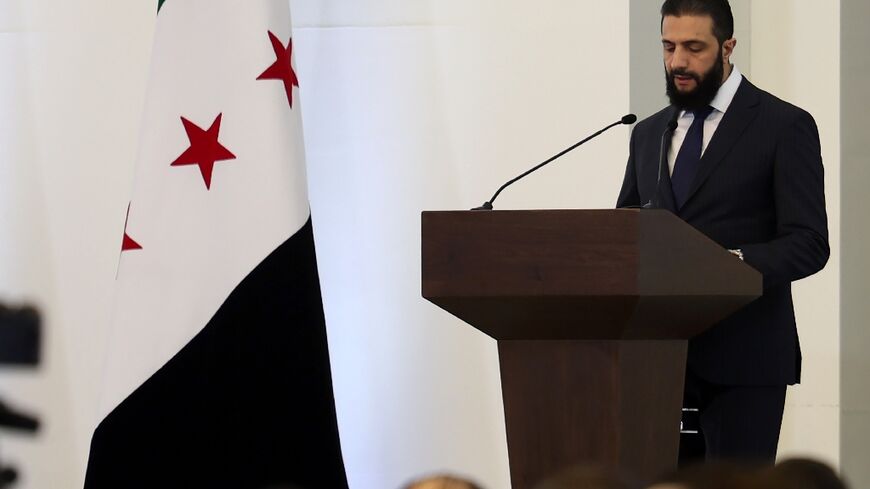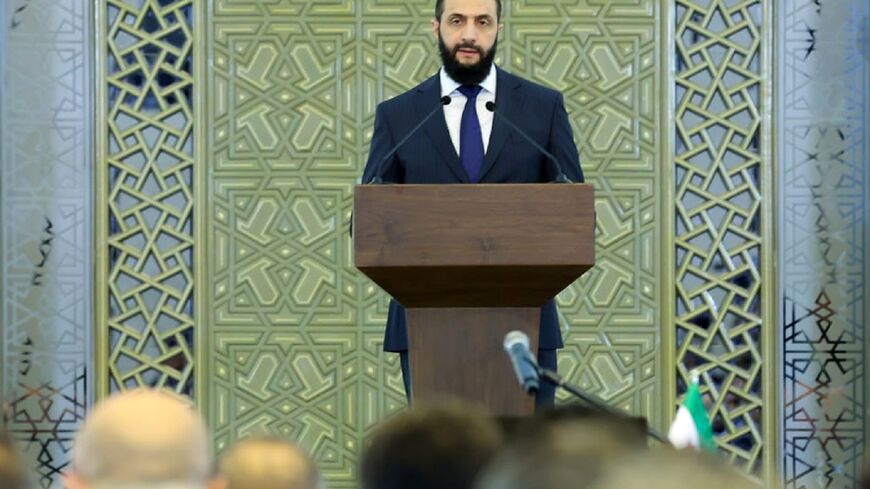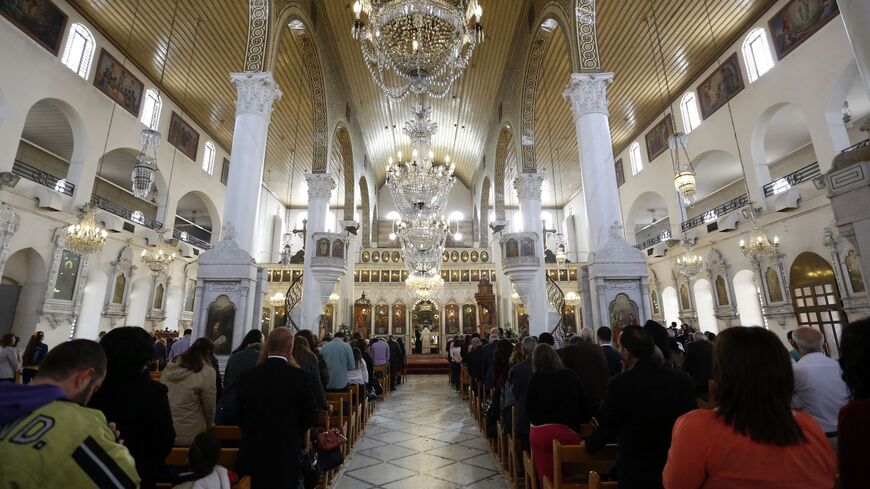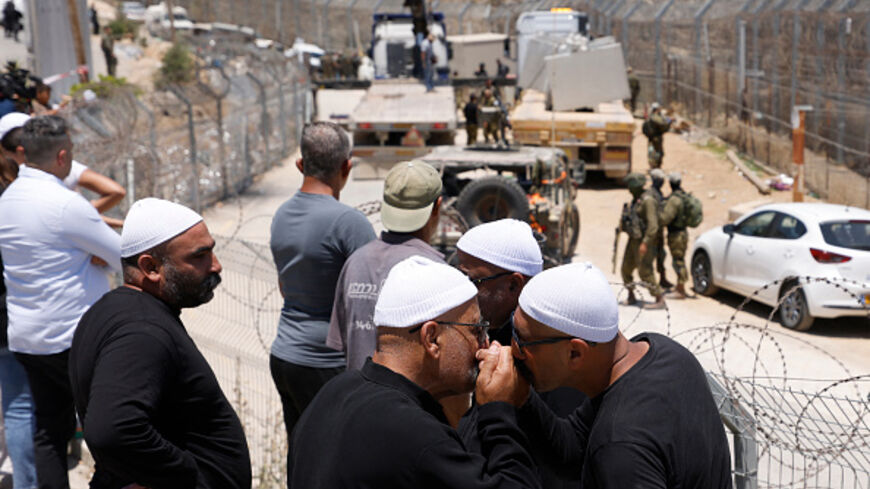US says Syria's transitional government a possible step forward
The State Department voiced cautious optimism over the new cabinet, which includes members of Syria’s Christian, Alawite, Druze and Kurdish minorities.
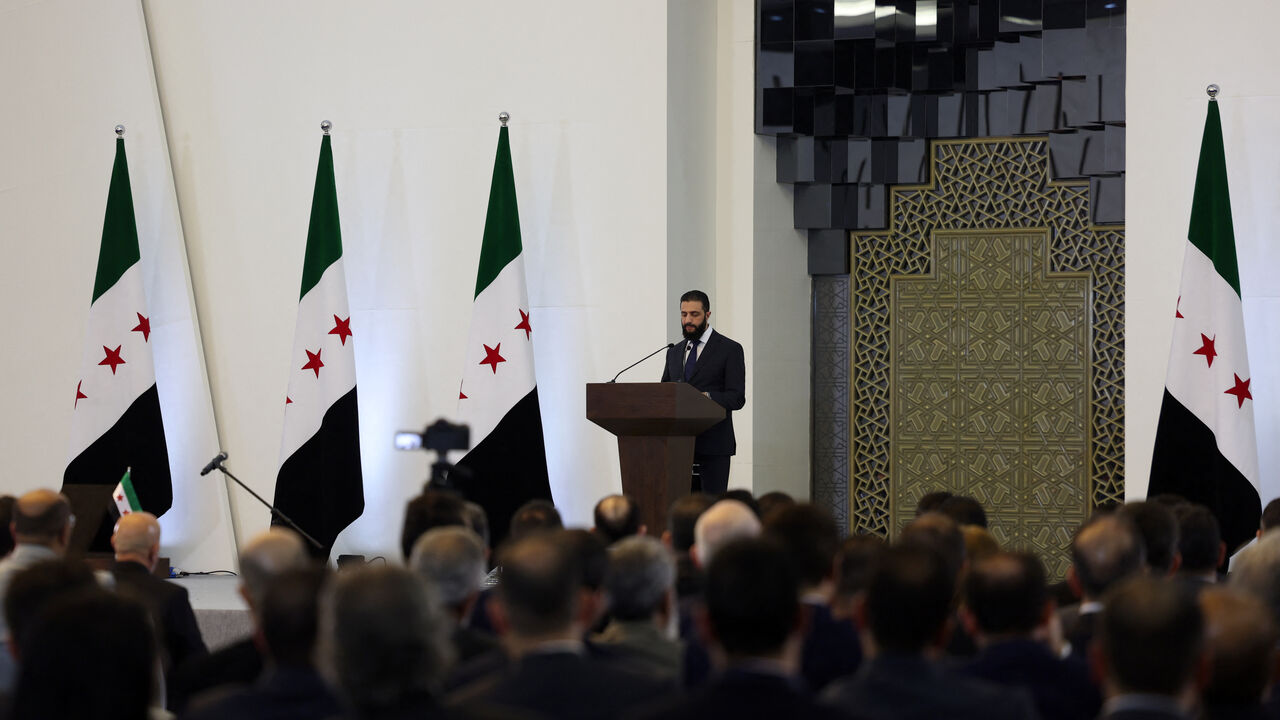
WASHINGTON — The Trump administration said Monday the formation of a new, more representative transitional government in Syria is a possible step in the right direction nearly four months after Bashar al-Assad's ouster.
"We recognize the struggles of the Syrian people who have suffered decades under despotic rule and oppression of the Assad regime, and we hope this announcement represents a positive step for an inclusive and representative Syria," State Department spokesperson Tammy Bruce told reporters.
The United States and European governments have been urging the authorities in Damascus to form a government inclusive of the country’s ethnic and religious minorities. Syrian President Ahmed al-Sharaa unveiled late Saturday a 23-member cabinet consisting mostly of Sunni Arabs but also members of Syria’s Christian, Alawite, Druze and Kurdish minorities.
The announcement came some three weeks after clashes between government-aligned forces and Assad loyalists in the country’s coastal provinces left more than 2,000 people dead, most of them Alawites. The bloodshed contributed to existing skepticism in Washington over Sharaa’s ability to meet US conditions for sanctions relief, including ensuring protections for minority groups.
Bruce outlined a series of requirements that the Syrian government must meet for the Trump administration to consider lifting sanctions, including its destruction of the former regime's chemical weapons stockpile and the exclusion of foreign fighters from official roles in the Syrian government. The conditions are consistent with a list a senior US official provided Damascus with earlier this month, as reported by Al-Monitor.
"Any adjustment to US policy toward Syria's interim authorities will be contingent on all of those steps being taken," Bruce said.
Some of the most powerful ministries in Syria's new government are headed by former members of Sharaa’s Hayat Tahrir al-Sham militant group or its affiliated Syrian Salvation Government that administered Idlib province. They include Asaad al-Shaibani, who retained his role as foreign minister, and Murhaf Abu Qasra, who will continue to serve as defense minister. Another of Sharaa’s key allies, Anas Khattab, will lead the Interior Ministry.
Syria’s transitional government will not have a prime minister as a result of the recently approved temporary constitution — an arrangement that concentrates executive power under Sharaa.
Five of the newly named cabinet members previously served in the former Assad government, including Transportation Minister Yarub Badr, an Alawite. The only woman and only Christian in the cabinet is Hind Kabawat, a former negotiator for the Syrian opposition who was appointed minister of social affairs and labor. Raed Al Saleh, head of the White Helmets rescue organization, was named minister of emergency and disaster management.

